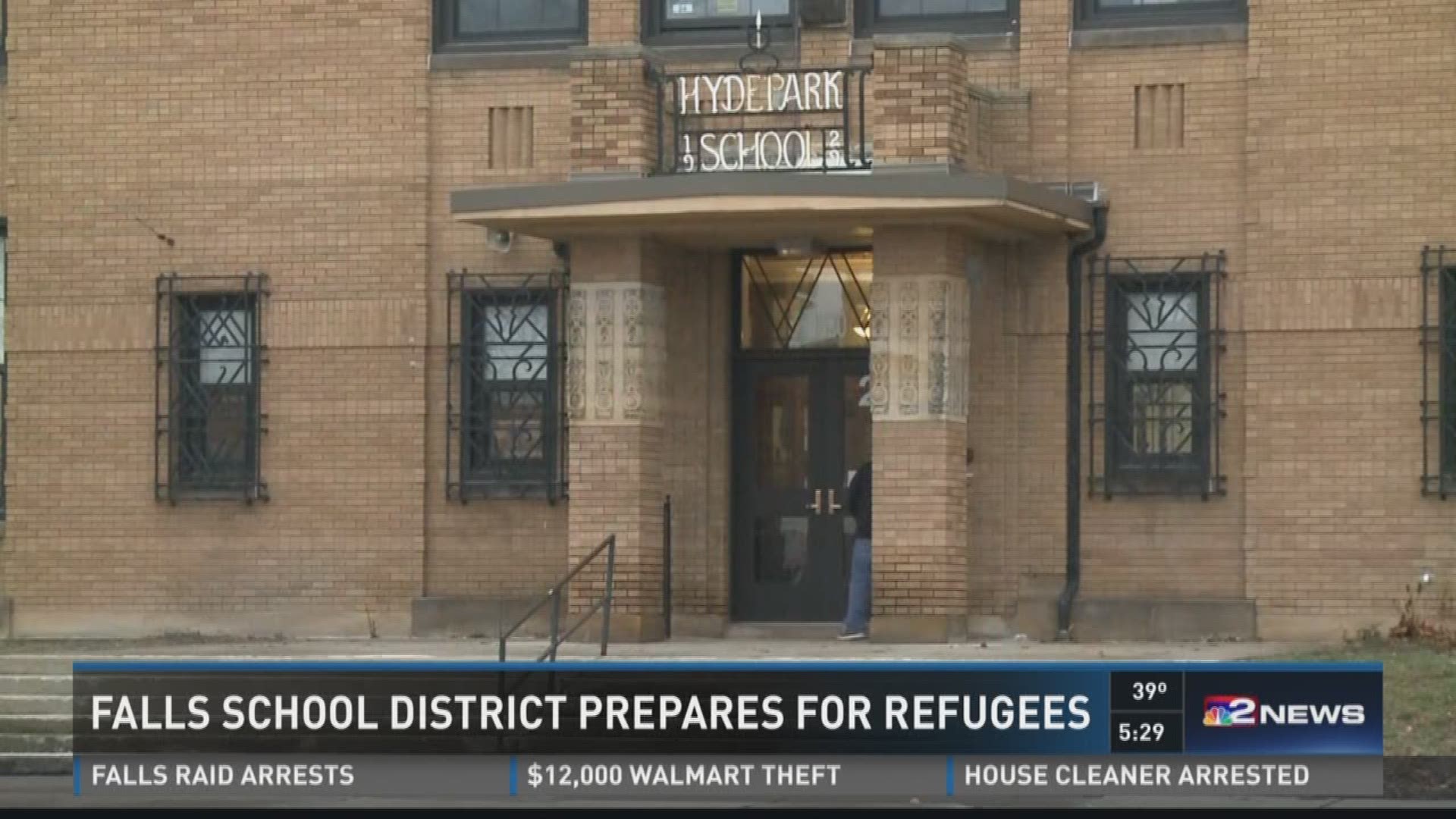NIAGARA FALLS, N.Y. – Over the next eight months, as many as 35 children from war-torn countries will enroll in the Niagara Falls City School District. The first of those refugee children may be arriving in Niagara Falls by the end of January.
Superintendent Mark Laurrie said the district will need to first register the students and determine their academic status in order to place them in an appropriate grade level. The district will also likely need to hire new translators, teachers and associates, in addition to purchasing new technology. To cover those costs, the district will apply for state and federal funding, which it received three years ago during another influx of immigrant students.
“We’re going need to reach back to get support and help financially,” Laurrie said. “But I think in the long-run, if this can help bring the Niagara Falls community up economically, I think it’s a good thing.”
The district has been in close contact with Jewish Family Service, the Buffalo-based organization helping to resettle the children and their families in Niagara Falls. Parents included, a total of 50 individuals will be moving here, starting in late January and extending through September.
Jewish Family Service CEO Marlene Schillinger said her organization hopes to resettle families from the French-speaking Democratic Republic of the Congo, since the language barrier wouldn't be as overwhelming.
No matter which countries the families come from, though, Laurrie said their arrival will expose the district's current students to new languages and cultures.
"Those are invaluable experiences, that you're not able to get just by looking at a video, or taking a trip, or looking at a textbook," Laurrie said, "(but instead), by riding next to someone on a bus, sitting next to someone in a class or having lunch with someone."
Jewish Family Service, with financial aid from the federal government, will help the families find apartments and pay for basic living expenses when they first arrive in the United States. The city of Niagara Falls will not be required to cover any of the costs.
Niagara Falls Mayor Paul Dyster said he expects the refugee families to help bolster the city’s economy. Many of the refugees in Buffalo already work at the Seneca Niagara Casino.
“We’ve been watching what’s happening in Buffalo, and we’ve seen this has had a lot of positive impacts on the West Side of Buffalo,” Dyster said. “(In Niagara Falls), we do have a problem here with declining population, we do have a problem with vacant buildings, and sometimes we have a problem getting people to work in entry level positions, in the tourism industry. So there’s some upside for us in this as well.”
Although only 50 refugees will be resettling in Niagara Falls initially, Laurrie expects more to arrive over the next several years.
In fact, he’s even discussing the possibility of creating an internationally-themed magnate school within his district to accommodate the students from so many different countries. His idea of a magnate school probably wouldn’t materialize for at least another year and a half, Laurrie said, but it’s all part of the district’s long-term planning.
“It’s going to take a lot of study and preparation, a need for support services, translation services,” Laurrie said. “Children coming here have experienced torture and brutal conditions, and we’ll need a different type of counseling.”
That magnate school could even involve an adult education program that could allow parents to take classes while their children are in school.
As Niagara Falls prepares for this initial wave of refugees, both Laurrie and Dyster said they’ve heard the negative backlash on social media, particularly in relation to security concerns and the admission of people from war-torn countries. In November 2015, Republican U.S. Congressman Chris Collins demanded Gov. Andrew Cuomo stop accepting Syrian refugees, even though that process is controlled through the federal government, not the governor’s office.
To be selected for resettlement, people – mostly families and young children -- must first apply through a refugee agency in the United Nations. If they are selected for resettlement in the United States, they are subject to screening by the intelligence community, the State Department, the Department of Homeland Security and the FBI, which includes an interview and fingerprinting. Syrian refugees undergo an enhanced review.
Dyster points out that any refugee moving to Niagara Falls faces a much stiffer vetting process than the millions of tourists who visit the Falls every year from hundreds of different countries.
“It’s one of the ironies here,” Dyster said. “I know there are a lot of people who are concerned about security, but people who are coming through the refugee program are the most thoroughly vetted of any visitor that comes to the United States from abroad.”

